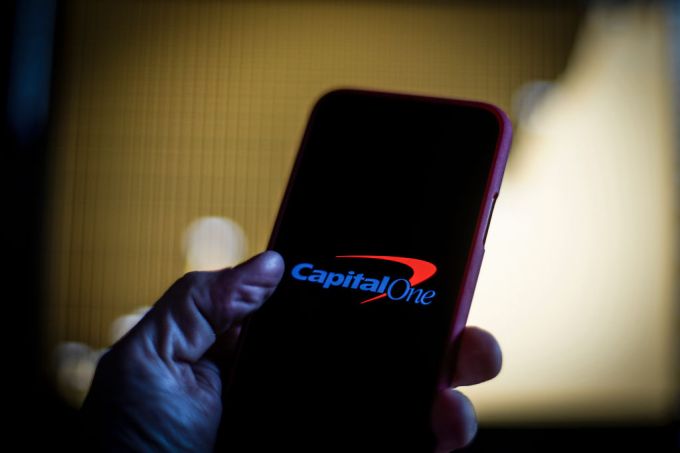Hello, weekenders. This is Week-in-Review, where I give a heavy amount of analysis and/or rambling thoughts on one story while scouring the rest of the hundreds of stories that emerged on TechCrunch this week to surface my favorites for your reading pleasure.
Last week, I talked about the Facebook FTC fine, the Sprint/T-Mobile deal getting approved, and the creeping feeling that decisive antitrust action was going to be fairly limited in scope.

The big story
There’s no rest for the wicked.
The very same week that users impacted by the Equifax breach were told they wouldn’t be receiving their full $125 settlement because too many people wanted it and not enough funds were put aside, we heard about a new awful hack, this time affecting Capital One and about 100 million of its customers.
Before delving into the blame game, I’d first like to call attention to their ingenious solution towards minimizing the fallout, by hoping affected parties didn’t read the bullet points in their statement.
https://twitter.com/zackwhittaker/status/1156027826912428032?s=20
Why does Capital One feel it gets to act this way? Because transparency still isn’t incentivized in any way during these data breaches and for these companies damage minimization is the true crisis, not making things better for consumers.
The FTC settlement with Equifax has left the stock price in the worrisome position of being within striking distance of an all-time high. The fact that consumer payouts were lowered because the FTC didn’t understand the full scope of consumers that knew they had been affected just adds insult to injury.
We likely still don’t know the extent of the damage from this breach, but we all understand the extent of the damage that Capital One may end up feeling — our anger and not much else.
Send me feedback
on Twitter @lucasmtny or email
lucas@techcrunch.com
On to the rest of the week’s news.

Trends of the week
Here are a few big news items from big companies, with green links to all the sweet, sweet added context:
- Facebook is still working on a brain-computer link
You might imagine that after all the privacy scandals have highlighted Facebook’s inability to cope with ethical concerns on existing platforms, Facebook may be a bit more reticent to build out future platforms, but you would be wrong! Facebook picked this week to highlight some of the progress of its non-invasive thought-to-text speech that it hopes will bring sophisticated input to AR headsets in the future. Read more here. - A Ninja disappears
Microsoft, and you may not know this, runs a Twitch competitor called Mixer which it built on the back of its Beam acquisition. The platform received a lot more visibility this week when one of Twitch’s biggest stars, Ninja, announced he was going to be leaving the platform and streaming exclusively on the Microsoft-owned platform. I am deathly curious what the price of this deal was, shoot me an email if you have leads. Read more here. - Trump strikes at JEDI
Maybe $10 billion isn’t what it used to be in the age of Softbank and decacorns being the new unicorns, but to Silicon Valley’s cloud titans, the government’s $10B JEDI cloud contract is huge. Trump also hates Jeff Bezos and is lobbying the DoD not to toss Amazon any favors. Read more here.
GAFA Gaffes
How did the top tech companies screw up this week? This clearly needs its own section, in order of badness:
- Apple reigns in Siri recording analysis after backlash:
[Apple suspends Siri response grading in response to privacy concerns] - Google gets busted over voice recordings as well:
[Google ordered to halt human review of voice AI recordings over privacy risks]

Extra Crunch
Our premium subscription service had another week of interesting deep dives. The most interesting — of course — was what I wrote this week :) I chatted with NEA’s GP Scott Sandell about his investments in both Salesforce and Tableau and about his 25-year career in VC.
The Exit: The acquisition charting Salesforce’s future
“Sandell: Well, I don’t know, I can’t speak for the industry because I think most firms are different. But at NEA, we intentionally hire and develop associates, and some of them become partners and general partners. So we have a long tradition in a systematic way of doing that.
Matney: Why do you favor that route?
Sandell: That’s a good question. I think, looking at it from the other side, we haven’t had a lot of success, hiring in very seasoned executives and turning them into investors, and I don’t think the industry has either. I think that that’s a fairly low-probability event that somebody that’s been the CEO of XYZ turns into a great investor.
Adding somebody as a general partner means that you’re going to commit a lot of capital to them before you know whether they’re any good, so they’re a much more expensive failure if they come in as a general partner and turn out not to be a good enough investor. You know, a lot of people come in that way and think they already know everything there is to know, they’re a little bit less likely to recognize that being an investor is an entirely different skillset. And while the experience they have can be informative to that and possibly very advantageous, it’s really a completely different game…”
Here are some of our other top reads this week for premium subscribers. This week, we talked about “virtual beings” and how to handle exceptional talent at your startup.
- A guide to virtual beings and how they impact our world
- The dreaded 10x, or, how to handle exceptional employees
We’re excited to announce The Station, a new TechCrunch newsletter all about mobility. Each week, in addition to curating the biggest transportation news, Kirsten Korosec will provide analysis, original reporting and insider tips. Sign up here to get The Station in your inbox beginning this month.
































Comment